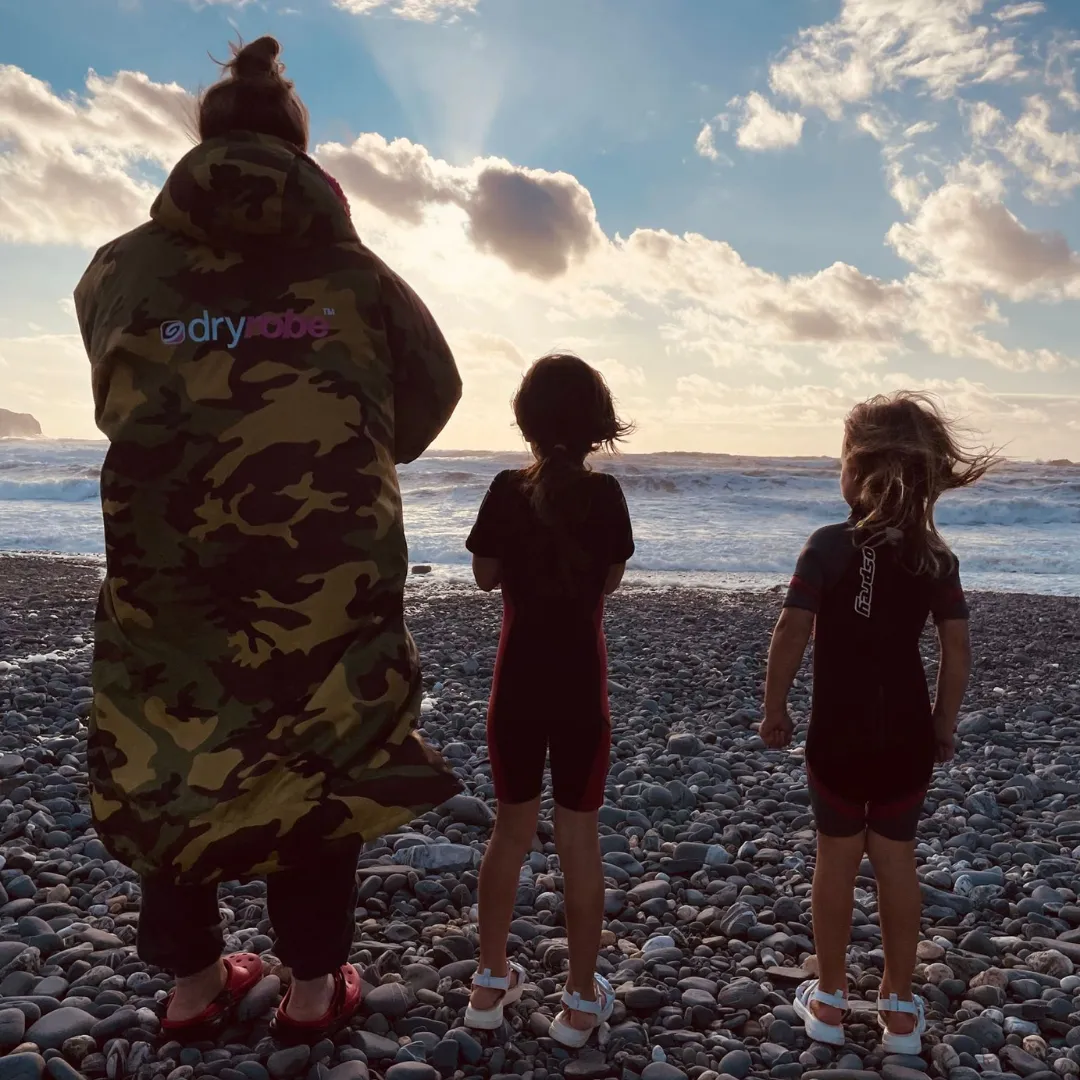Peaceful Parenting When You Have ADHD

As a parent with ADHD, learning to self regulate has been HARD. In fact, self regulation has been a struggle as long as I can remember and that's not really surprising if you consider that emotional regulation is a core executive function. Parents, and particularly the primary carer, also have to rely heavily on the other executive functions.
The executive functions:
Task initiation
Response inhibition
Focus
Time management
Working memory
Flexibility
Self-regulation
Emotional self-control
Task completion
Organisation
Becoming a parent felt to me a bit like being put into a control room with glass walls and having my executive functioning deficits analysed by teems of students (new mothers) and doctors (our parents, grandparents, ‘experienced parents’ and of course the older women on the bus or at the supermarket checkout who may have glanced my way). Every few minutes a new ‘stressor’ would be added; sleep deprivation, baby crying, baby won’t be put down, baby needs to feed, baby has fallen asleep on the breast and now I cant transfer her into her cot because she will wake up which means I won't be able to cook, clean, sleep, do exercise or whatever else I had deemed important in that moment etc etc etc.
And I lost it. Frequently.
One particularly bad night, i was sitting on the floor of my daughters bedroom shushing her to sleep with my phone strategically placed under her cot so I could just about read and operate it in a fashion in which none of that dangerous blue light would leak into her bedroom and I googled, ‘anger management- Cambridge’. It was time I took control.
I underwent talking therapy for a few years and learnt a lot more about why I got angry and what I got angry about. I knew the why. I knew my feelings were valid, normal and reasonable. I knew my reactions were more than the average person and that was probably due to my ADHD, and the fact that I had a lot of triggers from my childhood as an undiagnosed kid with executive dysfunction. But I was still missing the what to do about it. Deep down I knew that in order for anything to change I would have to go much deeper within.
The real work began after reading Dr Laura Markham’s ‘Peaceful Parents, Happy Kids’. Her approach focuses on 3 big ideas:
Regulate your emotions
Empathise with your child
Emotion Coach
If you are doing all 3 you can’t go far wrong. Your kids will do well (or at least much better than if you werent following this approach). The approach made so much sense to me but it was clear that at that time, I was not equipped to do step 1. I now recognise this as a lagging skill. That this was not my fault and I urge anyone reading this for whom any of this is ringing true to let this sink in. I was not equipped. It was not my fault. You may not be equipped. It is not your fault. But you can be equipped. And you can change both your life and that of your family… and the generations to come. How exciting is that?!
The journey to my own improved regulation took years and involved the following:
Buy in - Through lots of reading and listening to podcasts I became convinced that the only way to really help my children was to learn self-regulation
Belief - The above material also gave me the belief that reaching a more regulated state was possibleInvestmentI started seeing a body psychotherapist to help me process the feelings within my body.
Time off work to recover from parental (and I suspect) executive function related burnout.
Completing workbooks and journal exercises
Seeking medical support and starting medication for anxiety and restarting medication for ADHD after a 10 year break for IVF and breastfeeding.
Integration of routine practices
-A short daily meditation practice - This took me years to achieve and for the first year I found meditation extremely uncomfortable but I truly think this is the key maintenance tool for me now. I talk about this more in my post - My ADHD journey to meditation
Distribution of post it notes around the house in places where I often get triggered. For example, on the fridge I have my favourite quote ‘How I handle my child's emotions will make a difference for the rest of their lives’, I have a reminder to breathe at the top of the stairs ( a prompt for grounding during those back to bed moments and sibling squabbles), I have a reminder to be grateful on the door to the utility room, and mantras
- Integrating using mantras to slow myself down. ‘Stop, drop and breathe’, ‘It's not an emergency’, ‘Your child is not being a problem, your child is having a problem’Daily self compassion alarm that goes off at 1300 every day on my phone. Whatever I am doing I will stop, put my hand on my heart (even subtly during a conversation or meeting), ground myself momentarily and tell myself that I am doing a good job and let that sink in for a moment before going back to the chaos of my day.
The above journey is very individual to me and I expect everyone’s journey will look very different. It was definitely a 2 step forward 1 step back (and often 3 steps back) kind of a journey and I still have off moments. But these are now moments rather than days or weeks. And I am now so much more aware of the feelings in my body, and have enough inner compassion to release myself from shame and bring myself back into the moment. I am able to explore those feelings with curiosity instead of pushing them down in fear. I make the repairs necessary and move on. I am now modelling regulation and my children will be absorbing this.
They too have neurodiversity. They can be extremely dysregulated and I know this is a trigger for me. I experience my past hurts through their struggles. But what is truly wonderful is that I can put myself in their shoes. I am closer to the experience. I get it. And they get it. And that is very reassuring for them. It is also a gift to me as through parenting them with compassion and really trying to see them where they are at. By being there for them through the aggressive meltdowns and never giving up on them, I am also healing my inner child. I am representing myself. And becoming a better mother every day.
We will never be perfect parents and we don’t want to pretend to be. Seeking perfection leads to perfectionistic tendencies and puts undue pressure on our kids. It also puts undue pressure on ourselves and creates anxiety which is not conducive to regulation.
What we want to be is loving, empathic and as regulated as we possibly can be. Where we fall down, we pick ourselves up. We apologise and repair. We don't dwell in shame and pretend it never happened. We model that repair to our children, we own up fully to what we did and why it wasn't right, and we do everything we can to heal the rupture.
We parent positively, we believe in our children, we believe in ourselves, and through that belief they feel safe, confident and trusting that they too will grow into the regulated, empathic and self assured adults we want them and they want to be.
If you would like help with any of this click below and let
CLICK BELOW FOR IMMEDIATE ACCESS TO FREE ADHD PARENT TRAINING VIDEOS
BOOK A FREE 20 CHAT WITH ME
© Copyright Positively Parenting. All rights reserved.
